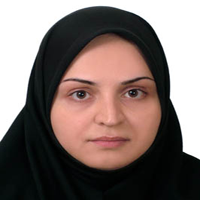Isolation and identification of an acrylonitrile-degrading bacterial strain from a petrochemical wastewater treatment system activated sludge and its efficiency in acrylonitrile removal
Author(s):
Abstract:
Background And Aim
Acrylonitrile (ACN) is widely used as a main raw material in the Acrylonitrile-Butadiene-Styrene (ABS) resin-manufacturing units and other industrial and commercial processes. ACN, due to its toxicity, is not easily decomposed by microorganisms. The discharge of improperly treated ACN-containing wastewater into a natural water body may cause serious environmental problems and severe adverse impact on the aquatic ecology. This study attempts to isolate and identify bacteria which utilize ACN as the sole source of carbon and nitrogen from the activated sludge of petrochemical wastewater treatment system. The performance of the isolated strains in treating different initial ACN concentrations was also investigated under aerobic conditions. In addition, the performance of biodegradation and the metabolic intermediates and end-products in the process were determined.Materials And Methods
Experiments were conducted with three batch reactors, the volume of each one being 250 mL. The activated sludge samples as a microbial seeding were taken from the return sludge line of the aeration tank of the wastewater treatment facility in Tabriz Petrochemical Complex. Phosphate-buffered medium (PBM) was used to make available minerals and trace elements, and ACN was used as the sole carbon and nitrogen source for microbial growth. R2A medium was used to obtain pure colonies, and to identify the isolated strain, Gram staining and microscopic examination followed by biochemical and physiologic analyses using selective media such as O-F glucose, MacConkey agar, TSI agar, EMB and SS agar, nitrate reduction, gelatin liquefaction, lactose fermentation, oxidase, catalase and SIM were used. In the final stage, the performance of biological systems in degrading different initial concentrations of ACN and its intermediate and end-products were investigated. Results
The findings indicated that when the ACN concentration was 500 mg/L, the average removal efficiency after 46 and 70 h reached 46% and 98%, respectively. But at an initial concentration of 700 mg/L, the removal efficiency of the ACN in the biological system was 50% after 46 h and 98.6% after 94 h. However, when the ACN concentration was increased to 1000 mg/L, the removal efficiency after 46 and 94 h was only 30% and 40%, respectively, and after 118 h of reaction, the remaining concentration of ACN was about 580 mg/L. Furthermore, the results of isolation and identification experiments revealed that at the optimum operation of the biological system the strain belonging to the gamma group of Proteobacteria as Pseudomonas putida had the best ability to degrade ACN.Conclusion
Biological processes can degrade ACN and the abilities of different bacterial strains in this degradation vary. The rod-shaped Gram-negative P. putida could easily adapt to ACN concentrations up to 700 mg/L and utiliz ACN and its intermediate- and end-products as a carbon and nitrogen source for growth in the process. Thus, this strain is expected to play an important role in aeration tanks for treating ABS resin-manufacturing wastewater.Language:
Persian
Published:
Scientific Journal of School of Public Health and Institute of Public Health Research, Volume:6 Issue: 3, 2008
Page:
119
magiran.com/p644421
دانلود و مطالعه متن این مقاله با یکی از روشهای زیر امکان پذیر است:
اشتراک شخصی
با عضویت و پرداخت آنلاین حق اشتراک یکساله به مبلغ 1,390,000ريال میتوانید 70 عنوان مطلب دانلود کنید!
اشتراک سازمانی
به کتابخانه دانشگاه یا محل کار خود پیشنهاد کنید تا اشتراک سازمانی این پایگاه را برای دسترسی نامحدود همه کاربران به متن مطالب تهیه نمایند!
توجه!
- حق عضویت دریافتی صرف حمایت از نشریات عضو و نگهداری، تکمیل و توسعه مگیران میشود.
- پرداخت حق اشتراک و دانلود مقالات اجازه بازنشر آن در سایر رسانههای چاپی و دیجیتال را به کاربر نمیدهد.
In order to view content subscription is required
Personal subscription
Subscribe magiran.com for 70 € euros via PayPal and download 70 articles during a year.
Organization subscription
Please contact us to subscribe your university or library for unlimited access!


